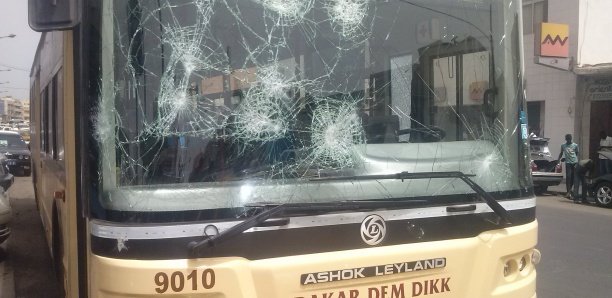The insidious joy of destroying public property

The destruction of public property has become an appalling feature of Senegal these days. For any reason, common property is being robbed, public utility works are being sabotaged, and public buildings are being ransacked. This madness has reached all circles of Senegalese life.
The triumphs or setbacks of our wrestlers are an opportunity to tear out the seats of the National Arena of Pikine. The end of classes in schools is celebrated by our students by breaking the tables and ransacking the classrooms. The episode of the Lycée de Yoff is still fresh in our memories. On this day, a year ago, a column of Madiambal Diagne was published in these pages, questioning the teachers who would have fallen to the level of their students. This column which was written following cases of teachers violated by their students, appears to not have changed any minds. Our students demand their meals by turning the university restaurants upside down. Union demands are conducted by way of sabotaging of the work tools. Lawsuits that could be unfavorable to specific groups are leading to the physical destruction of the courts.
After all, It was in this country that a court was ransacked in Louga, in broad day light for everyone to see. Police stations were also stormed in Mbour and Saint-Louis in the recent past. It is in this country that water evacuation facilities are sabotaged and obstructed in different agglomerations to amplify the damage in cities with poor sanitation. From Yoff to Keur Massar, without forgetting Thiès, acts of vandalism have been committed on the sanitation networks. One cannot understand what reason or cause could justify such a damaging conduct to all. The effort put into stuffing sandbags into sewers would have been of greater use to the community, if it were put into clearing the streets before the rains come. It is in this country that buses intended for intercity transport by the Dakar Dem Dikk company were stoned before they were even in commercial operation. Cables were cut along the route of the regional express train, hindering traffic for an entire day, with little regard for the safety of users. It is in this country that streetlights at the entrances and exits of cities serve as traffic barriers for careless motorists, if left untouched by solar panel thieves.
The picture may not be complete, but these situations have as a common denominator the lack of consideration for public infrastructure and common property. The common property is the red-haired stepchild of the Senegalese society. It is the target of all fury. Any and every person or group can attack it. Far too often, the State, which must protect public property, prefers to sweep these vandal acts under the carpet. How far are we going to continue to deteriorate with impunity everything that constitutes our common living environment? Will we ever realize that everything that is destroyed or sabotaged is financed by all of our contributions? When will we really be cured of this Schadenfreude (unhealthy joy), that is fed by seeing the destruction of our common property?
A civic and republican education seems a-propos to ensure that, at all levels, the importance and preservation of public property are cardinal values of our model of society. Sanction must also be doled out when necessary to combat these reprehensible acts. The Wolof language has this rather peculiar tendency to appropriate everything, in the first person, by slipping in « Sama » all the time. One day, our linguists and sociologists will have to help us understand why the much desired « Sunu » is so elusive under our skies. Our public infrastructure suffers enough from not being cherished as much as individual property is in this country.
By Serigne Saliou DIAGNE / saliou.diagne@lequotidien.sn

